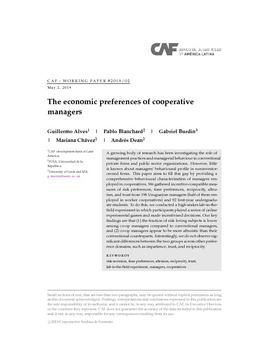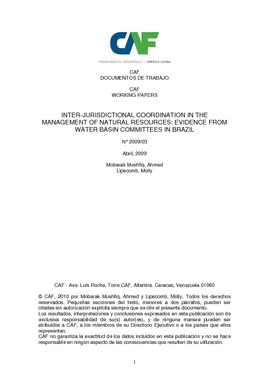The Economic Preferences of Cooperative Managers
Resumen
A growing body of research has been investigating the role of management practices and managerial behaviour in conventional private firms and public sector organizations. However, little is known about managers’ behavioural profile in noninvestorowned firms. This paper aims to fill this gap by providing a comprehensive behavioural characterization of managers employed in cooperatives. We gathered incentive-compatible measures of risk preferences, time preferences, reciprocity, altruism, and trust from 196 Uruguayan managers (half of them employed in worker cooperatives) and 92 first-year undergraduate students. To do this, we conducted a high-stakes lab-in-thefield experiment in which participants played a series of online experimental games and made incentivised decisions.
Materia
País / Región
Fecha
2019-05-02Citar de esta publicación
Item perteneciente a la Colección

Items Relacionados
Inter-jurisdictional coordination in the management of natural resources: evidence from water basin committees in Brazil
Decentralized management of public goods creates the potential for spillovers across jurisdictions. These spillovers may be particularly large in the ...
Gender for Development (brochure)
By 2025, Latin America could increase its GDP by 14% if the region manages to close the gap in women participation in the labor force. In the last 20 ...
CAF's Impact Measurement and Management Approach
The publication "CAF's Impact Management and Measurement Approach 2025" presents the strategic framework to evaluate and enhance contributions to ...


